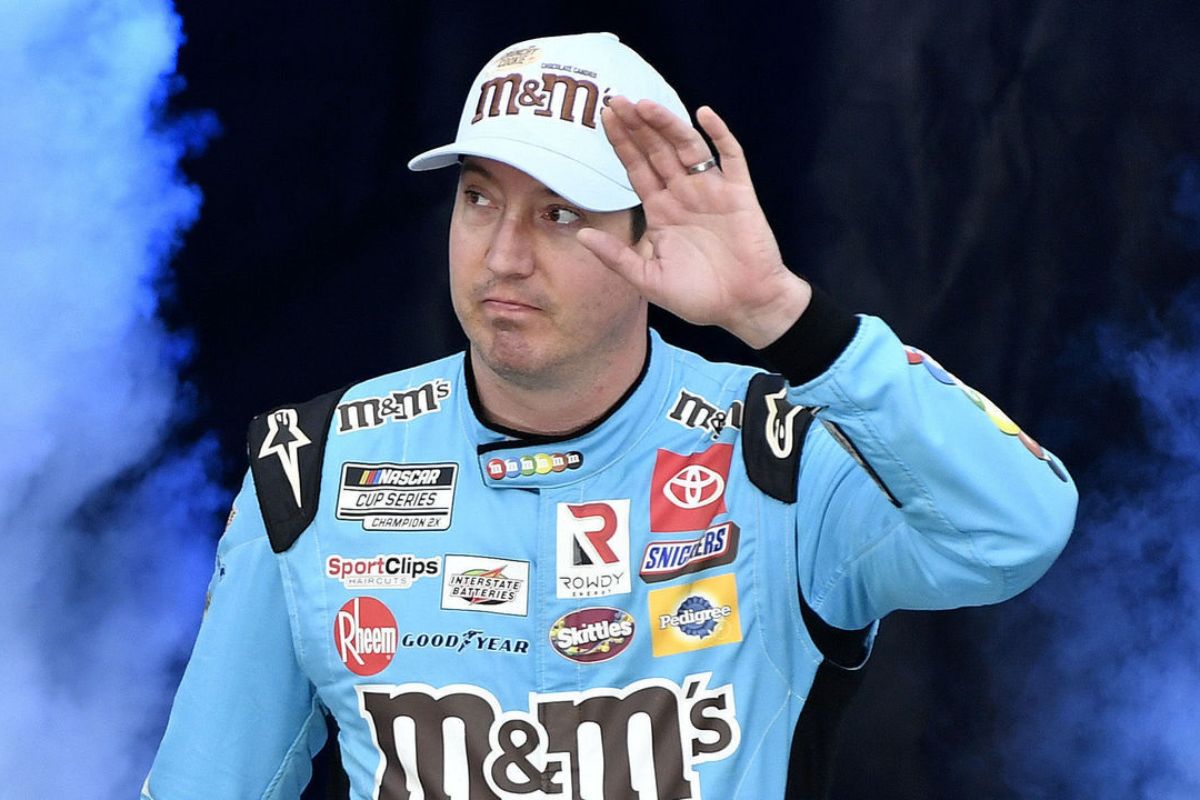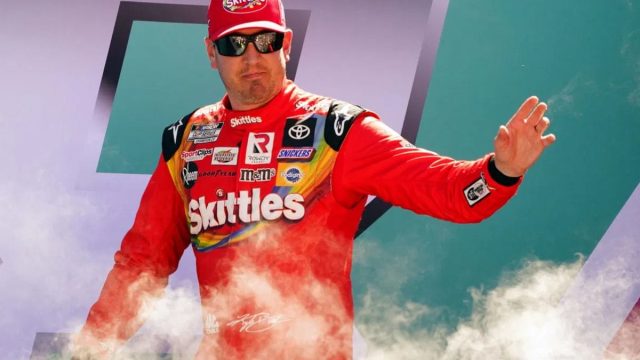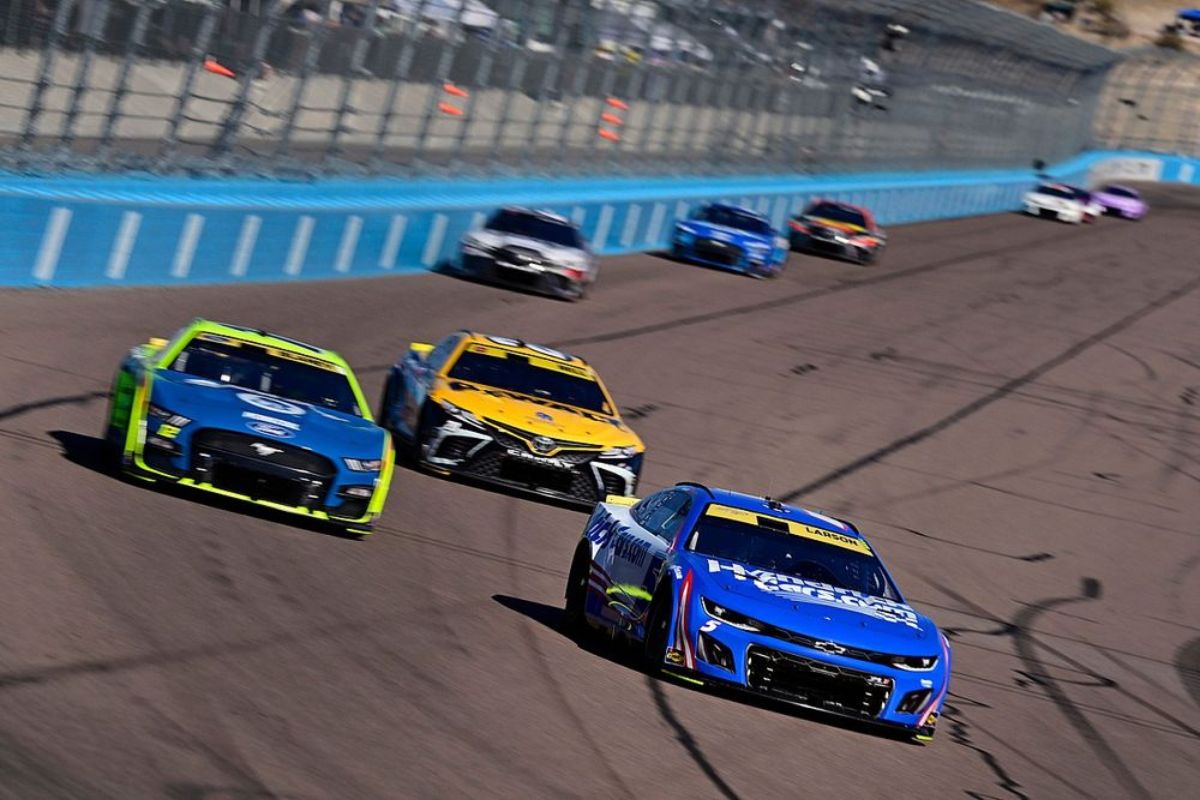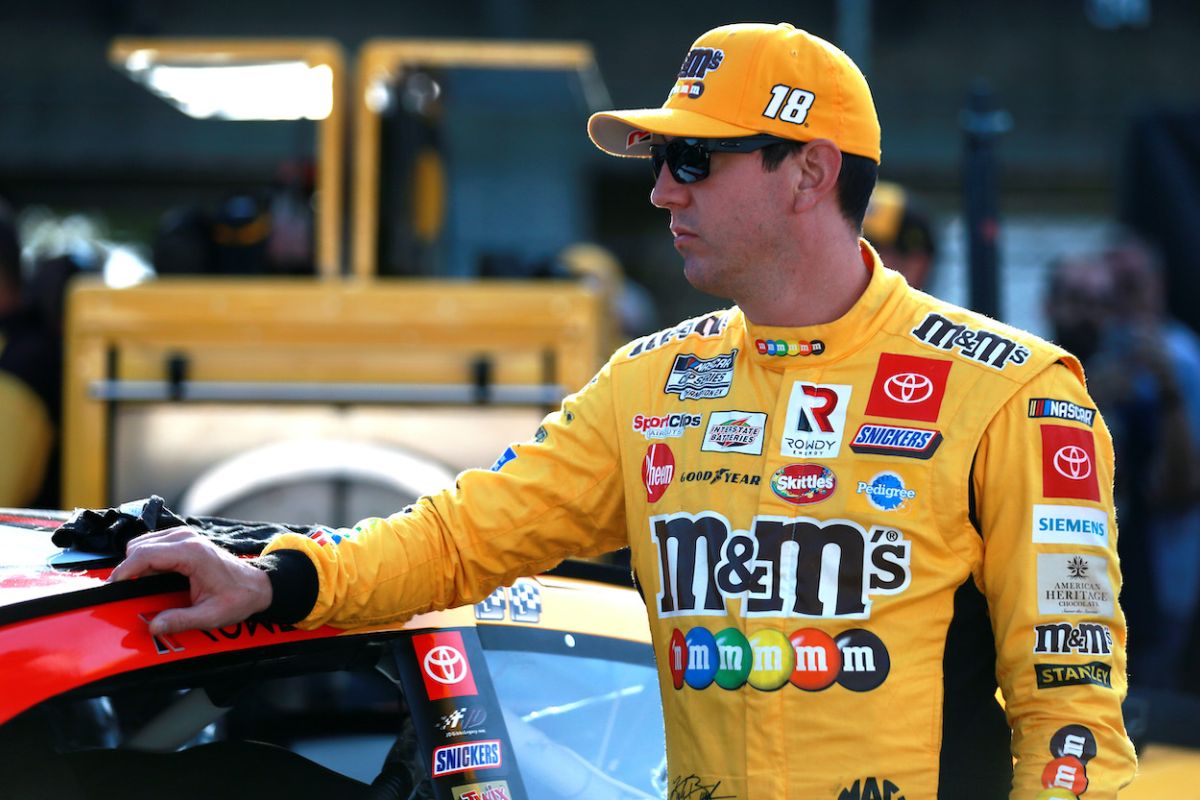Kyle Busch Breaks Silence on Daytona Near-Miss: In the aftermath of his narrow near-miss at Daytona, Kyle Busch‘s reflections reveal his disappointment and the intricate dynamics of competitive racing. Finishing just 0.047 moments short of victory, Busch’s acknowledgment that the outcome “wasn’t meant to be” raises intriguing questions about fate and performance under pressure. His resilience, coupled with a season marked by strong showings, positions him as a formidable contender moving forward. However, the implications of this near-miss extend beyond mere statistics; they invite a deeper examination of the factors that influence success and the psychological toll of such close calls in racing environments.
Key Highlights
- Kyle Busch expressed disappointment over his narrow runner-up finish at Daytona, losing by just 0.047 seconds.
- He acknowledged the intense competition and the fine line between victory and defeat during the race.
- Busch’s performance showed impressive driving, despite the race’s challenging and unpredictable nature.
- He reflected on the emotional toll of his challenging season and the yearning for redemption.
- Busch emphasized that the near-miss at Daytona serves as motivation for future races, particularly the upcoming Cook Out Southern 500.
Kyle Busch’s Recent Performance
In the wake of his recent performances, Kyle Busch has exhibited a remarkable resurgence, showcasing both skill and determination on the track. The driver of the No. 8 Chevrolet has displayed an impressive ability to adapt and plan, as evidenced by his solid finishes in back-to-back races. His performance at Michigan, where a well-timed pit call catapulted him into contention, highlights his keen racecraft and decision-making abilities.
Heading into the Coke Zero Sugar 400 at Daytona, expectations soared, enhanced by his recent momentum. Despite a respectable average finish of 12th in the Daytona 500 earlier this year, it was his Michigan result that injected renewed confidence into his campaign. Busch’s driving style, characterized by aggressive yet calculated maneuvers, has become increasingly effective, especially as he navigates the complexities of drafting and positioning in high-stakes environments like Daytona.
Although he ultimately fell short of a win, his near-miss at Daytona reflects a driver who is regaining his competitive edge. The blend of experience and youthful enthusiasm positions Busch well for future races, where he can continue to utilize his tactical insight.
As he works to break free from the constraints of a 44-race winless streak, Busch’s recent performances signal a potential turning point in his season, igniting hope among fans and stakeholders alike.

Kyle Busch’s Regret
A palpable sense of regret permeated Kyle Busch’s reflections following his narrow runner-up finish at Daytona, where the margin of defeat was a mere 0.047 moments. Despite the elation of a solid performance after an arduous stretch of bad luck, Busch’s disappointment was evident. The culmination of an arduous season weighed heavily on him, and the near-miss was a poignant reminder of the fine line between victory and defeat.
Throughout the race, Busch’s impressive maneuvering allowed him to navigate a treacherous environment filled with potential disaster. Yet, as he crossed the finish line, the realization that the victory slipped through his fingers was unmistakable. His comments about hoping for a different outcome revealed a deeper emotional layer; the yearning for redemption after a streak of misfortune.
Kyle Busch is the runner-up: "Finished second, it's all good. We were really, really, really lucky to miss those crashes tonight … Was hoping we could get those free No. 8 specials at @cheddarskitchen but it wasn't meant to be. We'll regroup and come back next week."
— PRN (@PRNlive) August 25, 2024
As Busch contemplates this near-miss, the path towards reclaiming his place at the top continues, fueled by both regret and determination.
The Coke Zero Sugar 400 Wrecks
Amidst the chaos of the Coke Zero Sugar 400, a series of harrowing wrecks transformed the race into a spectacle of tension and unpredictability. The initial calamity unfolded when Corey LaJoie collided with Noah Gragson, igniting a catastrophic chain reaction that ensnared 17 vehicles in a dramatic smoking pile-up. This incident set a foreboding tone, underscoring the inherent risks of restrictor plate racing, where split-second decisions can lead to widespread disaster.
As the race progressed, the unpredictability escalated. Michael McDowell’s loss of control saw him veer into Joey Logano, compounding the day’s chaos. The most shocking moment occurred when Josh Berry flipped upside down, a terrifying sight that momentarily halted the race and left spectators gasping. Such incidents serve as a vivid reminder of the razor-thin margin between triumph and tragedy in NASCAR.
Despite maneuvering through these perilous moments, veteran driver Kyle Busch found himself at a crossroads when he encountered Harrison Burton, whose blockade threatened Busch’s path. Faced with a choice between aggressively pushing through or exercising restraint, Busch opted for the latter.
Reflecting on the moment, he stated, “Besides flat-out wrecking him, there was nothing I could do.” This decision illuminated Busch’s understanding of racecraft: the balance between aggression and strategy is essential in a sport defined by its unpredictability.
Ultimately, the wrecks in the Coke Zero Sugar 400 encapsulated the high stakes and relentless tension that characterize NASCAR racing.
Busch’s Pre-Race Expectations
Kyle Busch approached the Daytona race with high expectations, firmly believing that a top-five finish was within his grasp. With the pressure of maintaining his impressive streak of winning at least one Cup race for 19 consecutive years, Busch’s confidence was palpable. Following a robust fourth-place finish at Michigan the previous week, he exuded optimism about his chances for the upcoming race, stating, “We could legit win Daytona.” His 11th-place starting position provided a solid foundation for what he envisioned as a potential victory.
However, the looming specter of the playoffs added an extra layer of urgency to Busch’s aspirations. With only one race remaining in the Cup Series schedule, the need to secure a strong performance weighed heavily on him. The stakes were high—not just for the race itself, but for his legacy and the pursuit of a playoff berth.
The pressure to perform was compounded by the necessity of preserving his reputation as a perennial contender, which had been built over nearly two decades. In this context, Busch’s expectations were not merely about achieving a favorable finish; they were emblematic of his desire to solidify his position within the sport.
As he prepared for the race, the combination of his competitive spirit and the high stakes created an environment ripe for both opportunity and anxiety. The Daytona race represented more than just another event; it was a pivotal moment in Busch’s ongoing expedition in NASCAR, where every decision and maneuver could define his season.
Busch’s Struggles and Redemption
Following a challenging season marked by setbacks and frustrations, Busch confronted his struggles head-on, acknowledging the emotional toll they had taken on him.
“When you have done in addition to what you’ve done and the success and honors are plentiful, it’s tough to get run over and beat down,” he reflected. This candid admission highlights the psychological burden athletes often shoulder, particularly those like Busch, who have tasted considerable success.
Busch’s struggles have been multifaceted, revealing a deeper narrative about resilience in the face of adversity.
“It seems like the harder I work … the worse we are at the racetrack,” he lamented, illustrating a paradox that many elite performers face: the relentless pursuit of excellence can sometimes lead to diminishing returns.
“It’s tough because, when you have done as well as you’ve done and the success and the accolades and everything that you’ve had and you get run over, beat down, all that sort of stuff, it’s hard to get yourself back up again and to go back out there. But I’ve been down before, although probably never as long or as low as this has been. It seems like the harder I work … the worse we are at the racetrack.” – Busch
Yet, amid this tumult, redemption appears on the horizon. Busch’s near-miss at the Coke Zero 400, where he finished tantalizingly close to victory, suggests that he is on the cusp of a resurgence. The impending Cook Out Southern 500 at Darlington Raceway may serve as a pivotal moment in his season.
It offers Busch an opportunity to translate his hard-fought lessons into tangible success on the track, reaffirming his status as one of the sport’s most formidable competitors.
News in Brief: Kyle Busch Breaks Silence on Daytona Near-Miss
Kyle Busch’s near-miss at Daytona serves as a poignant reminder of the volatility inherent in competitive racing. The slim margin of 0.047 seconds highlights the fierce rivalry present within the sport, while Busch’s reflections reveal a deep understanding of the unpredictability of outcomes. Despite setbacks, the determination exhibited throughout the season stresses the potential for future triumphs. This experience may ultimately fuel Busch’s resolve, further enhancing his pursuit of victory in subsequent races.
ALSO READ: Kyle Busch Slams NASCAR’s Fan Neglect: Backing Denny Hamlin’s Bold Demands


